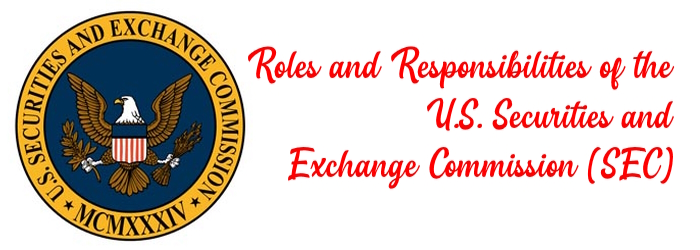Get ready to dive into the world of the SEC and unravel its mysteries. From protecting investors to enforcing compliance, this topic is about to take you on a wild ride through the financial markets.
Importance of the SEC
The Securities and Exchange Commission (SEC) plays a crucial role in regulating the financial markets, protecting investors, and ensuring fair, orderly, and efficient markets.
Regulating Financial Markets
The SEC oversees key participants in the securities world, enforcing regulations to promote transparency and accountability. By setting standards and monitoring compliance, the SEC helps maintain market integrity.
Protecting Investors
One of the primary functions of the SEC is to safeguard investors from fraudulent activities and misconduct. Through enforcement actions and investor education initiatives, the SEC aims to maintain trust and confidence in the financial system.
Maintaining Fair, Orderly, and Efficient Markets
The SEC works to prevent market manipulation, insider trading, and other practices that could undermine market stability. By promoting transparency and enforcing regulations, the SEC contributes to the smooth functioning of the markets for all participants.
SEC Regulatory Framework
The Securities and Exchange Commission (SEC) plays a crucial role in overseeing the securities industry and enforcing regulations to protect investors. Let’s delve into the key laws and regulations overseen by the SEC, examples of securities falling under SEC jurisdiction, and how the SEC ensures compliance with these regulations.
Key Laws and Regulations
- The Securities Act of 1933: This law requires companies to disclose certain information to the public when offering securities for sale.
- The Securities Exchange Act of 1934: This act regulates the secondary trading of securities in the market and aims to prevent fraud and manipulation.
- The Investment Company Act of 1940: This act regulates the activities of investment companies, such as mutual funds, to protect investors.
Examples of Securities under SEC Jurisdiction
- Stocks: Shares of ownership in a company that are bought and sold on stock exchanges.
- Bonds: Debt securities issued by corporations or governments to raise capital.
- Mutual Funds: Pooled investments that invest in a diversified portfolio of securities.
Enforcement of Compliance
The SEC enforces compliance with regulations through various means, including:
- Investigations: Conducting investigations into potential violations of securities laws.
- Enforcement Actions: Taking legal action against individuals or entities found to be in violation of regulations.
- Monitoring: Monitoring the activities of market participants to ensure adherence to rules and regulations.
SEC Reporting Requirements
To maintain transparency and protect investors, the SEC imposes specific reporting obligations on companies. These requirements ensure that accurate and timely financial information is made available to the public, allowing investors to make informed decisions.
Filing Financial Statements
Companies are required to file various financial statements with the SEC, including quarterly and annual reports. These reports provide detailed information about the company’s financial performance, operations, and management. The process involves preparing the financial statements according to Generally Accepted Accounting Principles (GAAP) and submitting them to the SEC electronically through the EDGAR system.
Significance of Transparency
Transparency in financial reporting is crucial for investors and the market as it promotes trust and confidence. By making financial information readily accessible, companies can attract more investors and maintain a positive reputation. Transparency also helps prevent fraudulent activities and ensures that companies are held accountable for their financial disclosures.
SEC Enforcement Actions

When it comes to enforcing securities laws, the SEC plays a crucial role in maintaining fair and transparent financial markets. The SEC has the authority to take enforcement actions against individuals or entities that violate securities laws, regulations, or rules. These enforcement actions can range from imposing fines and penalties to instituting legal proceedings against the violators.
Types of Violations
- Insider trading
- Accounting fraud
- Market manipulation
- False or misleading disclosures
Notable Cases
- Enron Corporation: One of the most infamous cases of accounting fraud where Enron executives manipulated financial statements to deceive investors.
- Bernie Madoff Ponzi Scheme: Bernie Madoff’s Ponzi scheme defrauded investors of billions of dollars, leading to one of the largest enforcement actions in SEC history.
- Tesla CEO Elon Musk: Musk faced enforcement actions for misleading tweets about taking Tesla private, resulting in a settlement with the SEC.
Penalties and Sanctions
- Monetary fines: The SEC can impose hefty fines on individuals or entities found guilty of securities violations.
- Disgorgement of profits: Violators may be required to return ill-gotten gains obtained through fraudulent activities.
- Bans and suspensions: The SEC has the authority to bar individuals from serving as officers or directors of public companies.
- Criminal charges: In severe cases, the SEC may refer cases to criminal authorities for prosecution.
